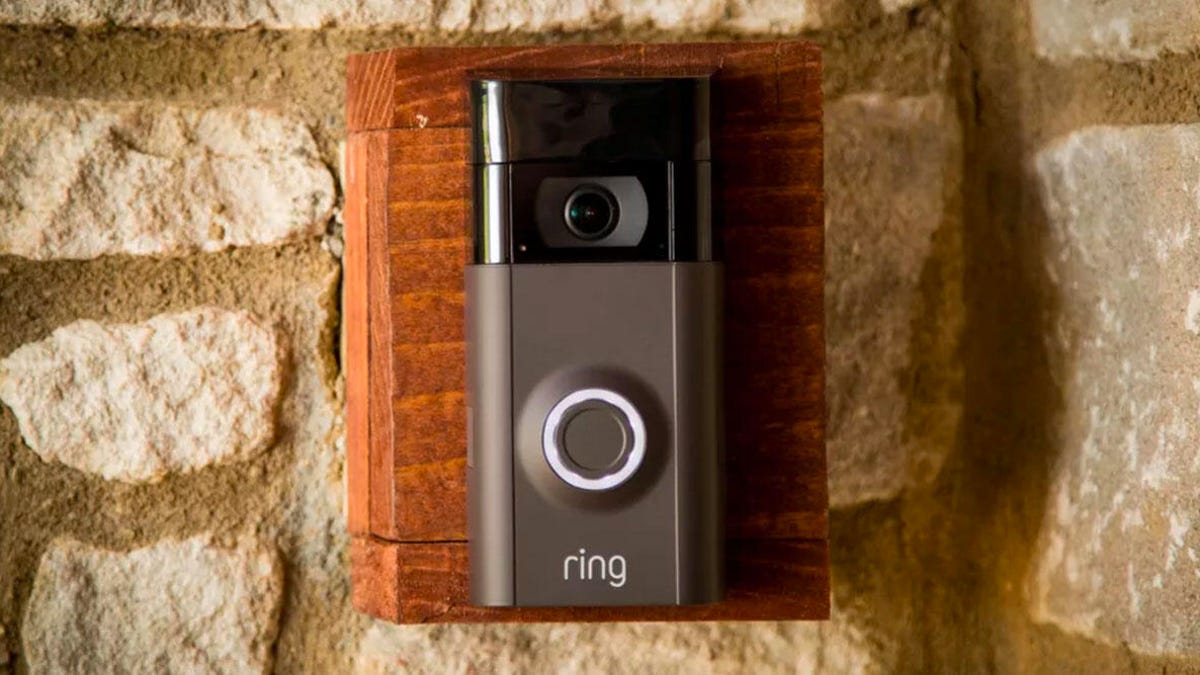Congress demands answers from Ring on police partnerships
The House Oversight Committee wants to hear from all police departments that have worked with Ring, and also if they use Amazon's facial recognition.

Congress wants documents from Ring on all its police partnerships.
Congress is knocking on Amazon's door with questions about its video doorbell company, Ring, and the hundreds of police partnerships Ring has built over the last two years.
In a letter sent Wednesday by the House Committee on Oversight and Reform, lawmakers are demanding answers from Amazon on Ring's partnerships with governments and police departments, and on Ring's policies regarding collected data.
"The Subcommittee is seeking more information regarding why cities and law enforcement agencies enter into these agreements," Rep. Raja Krishnamoorthi, chairman of the Subcommittee on Economic and Consumer Policy, said in the letter. "The answer appears to be that Ring gives them access to a much wider system of surveillance than they could build themselves, and Ring allows law enforcement access to a network of surveillance cameras on private property without the expense to taxpayers of having to purchase, install, and monitor those cameras."
Ring has partnered with more than 900 police departments across the US since 2018, after Amazon purchased the video doorbell company. These partnerships have alarmed both lawmakers and privacy advocates, who worry that the tech giant is creating a surveillance network in residential neighborhoods.
Details of the partnerships are often scarce, as Ring explicitly tells police partners not to share with the public details on how the surveillance works. Investigations by CNET have found that Ring provided police with nearly precise locations of Ring owners on maps and that it also told police chiefs it wanted to use 911 calls to activate video cameras automatically.
In recent weeks, Ring has taken measures in response to these privacy concerns, rolling out a control center to opt-out of receiving police requests, though lawmakers noted in the letter that it doesn't prevent police departments from obtaining videos from people's doorbells with a warrant.
Ring said it's reviewing the letter and intends to respond.
Though Ring announces when it has a new police partner, details on how these agreements work or how police have been using the technology aren't provided by the company. The letter is asking Brian Huseman, Amazon's vice president of public policy, for answers by March 4.
The subcommittee is requesting documents on topics including:
- All of Ring's agreements with cities and law enforcement agencies.
- If those agencies are also paying for Amazon's Rekognition facial recognition tech.
- Every instance where a partnered police department requested video footage.
- All third-party partners with whom Ring has shared footage and personal data.
- All of Ring's sources of computer-aided dispatch data.
- Integration of facial recognition with Ring video doorbells.
- Ring's policies on privacy and obtaining consent from people in Ring videos.
- Unauthorized access by Ring employees to video footage.
- Ring's research on issues of privacy and racial profiling.
- Customer complaints on Ring's security vulnerabilities.
The subcommittee is also asking for a briefing from Amazon, by Feb. 27, on Ring's privacy and security measures.
You can read the full letter here:
Originally published Feb. 19, 9:45 a.m. PT.
Update, 9:58 a.m.: Adds response from Ring.

